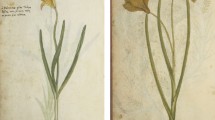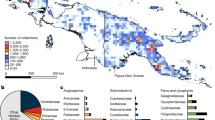Abstract
Sir Frank Engledow, in common with many other botanists, is concerned that his subject is not attracting sufficient students, and that botanists are not being given the jobs they deserve. In this article he calls for changes to put the situation right. Following this article, several other botanists add their comments to those of Sir Frank.
This is a preview of subscription content, access via your institution
Access options
Subscribe to this journal
Receive 51 print issues and online access
$199.00 per year
only $3.90 per issue
Buy this article
- Purchase on Springer Link
- Instant access to full article PDF
Prices may be subject to local taxes which are calculated during checkout
Similar content being viewed by others
References
Biological Sciences in Sixth Forms and Universities in the UK (Royal Society—Institute of Biology: Biological Education Committee).
Fourth Report 1965–6 (Universities Central Council on Admissions).
First Employment of University Graduates 1964–5 (University Grants Committee).
Postgraduate Training in the United Kingdom, 3, Biology (Royal Society, 1968).
Plant Sciences Now and in the Coming Decade (US Nat. Acad. Sci., 1966).
Inst. Biol. J., 13, 4 (1966).
Purseglove, J. W., Tropical Crops, Dicotyledons 1 and 2 (two volumes) (Longmans, London, 1968).
Author information
Authors and Affiliations
Rights and permissions
About this article
Cite this article
ENGLEDOW, F. Teaching and Research in Botany in the United Kingdom. Nature 220, 541–545 (1968). https://doi.org/10.1038/220541a0
Issue Date:
DOI: https://doi.org/10.1038/220541a0
Comments
By submitting a comment you agree to abide by our Terms and Community Guidelines. If you find something abusive or that does not comply with our terms or guidelines please flag it as inappropriate.



